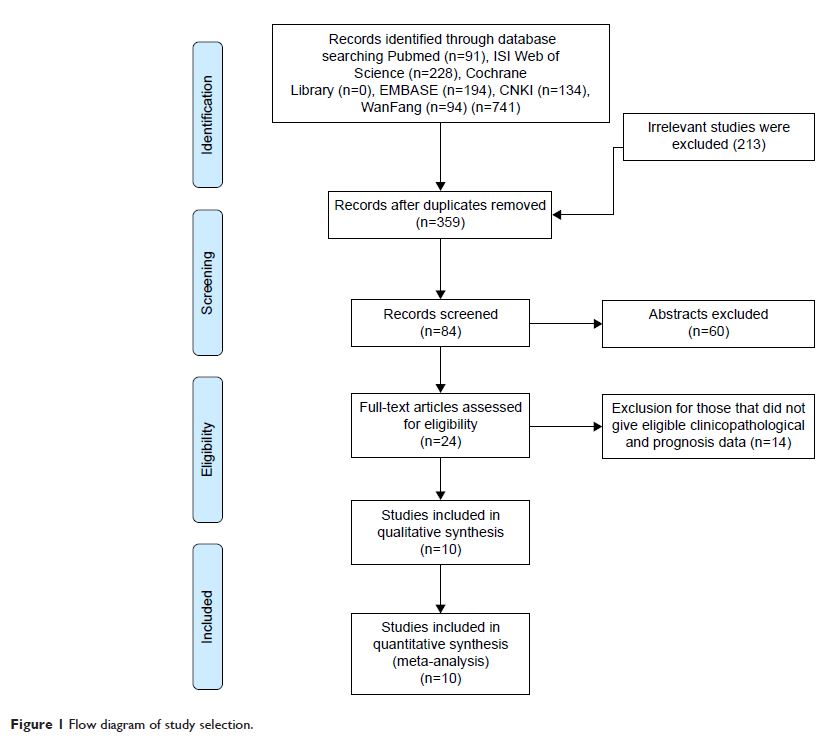108985
论文已发表
注册即可获取德孚的最新动态
IF 收录期刊
- 3.4 Breast Cancer (Dove Med Press)
- 3.2 Clin Epidemiol
- 2.6 Cancer Manag Res
- 2.9 Infect Drug Resist
- 3.7 Clin Interv Aging
- 5.1 Drug Des Dev Ther
- 3.1 Int J Chronic Obstr
- 6.6 Int J Nanomed
- 2.6 Int J Women's Health
- 2.9 Neuropsych Dis Treat
- 2.8 OncoTargets Ther
- 2.0 Patient Prefer Adher
- 2.2 Ther Clin Risk Manag
- 2.5 J Pain Res
- 3.0 Diabet Metab Synd Ob
- 3.2 Psychol Res Behav Ma
- 3.4 Nat Sci Sleep
- 1.8 Pharmgenomics Pers Med
- 2.0 Risk Manag Healthc Policy
- 4.1 J Inflamm Res
- 2.0 Int J Gen Med
- 3.4 J Hepatocell Carcinoma
- 3.0 J Asthma Allergy
- 2.2 Clin Cosmet Investig Dermatol
- 2.4 J Multidiscip Healthc

OCT4 在肝细胞癌中的临床病理学和预后意义:一项荟萃分析
Authors Liang CJ, Xu YC, Ge H, Li GM, Wu JX
Received 11 September 2017
Accepted for publication 11 November 2017
Published 21 December 2017 Volume 2018:11 Pages 47—57
DOI https://doi.org/10.2147/OTT.S151390
Checked for plagiarism Yes
Review by Single-blind
Peer reviewers approved by Dr Akshita Wason
Peer reviewer comments 2
Editor who approved publication: Dr Tohru Yamada
Background and
aims: Octamer-binding transcription factor 4 (OCT4) has been implicated in the
development of hepatocellular carcinoma (HCC), although the findings are
controversial. We conducted a meta-analysis to assess the correlation between
OCT4 and the clinicopathological characteristics and the prognostic value in
HCC.
Methods: An electronic search for relevant articles was
conducted in PubMed, Cochrane Library, Web of Science, EMBASE database, Chinese
CNKI, and Chinese WanFang database. Correlations between OCT4 expression and
clinicopathological features and survival outcomes were analyzed. Pooled odds
ratios and hazard ratios with 95% CIs were calculated using STATA 14.2
software.
Results: A total of 10 trials with 985 patients were
included. Positive OCT4 expression was correlated with tumor size, tumor
numbers, differentiation, and TNM stage. OCT4 expression was not correlated
with gender, age, hepatitis B surface antigen, alfa-fetoprotein, liver
cirrhosis, vascular invasion, or tumor encapsulation. OCT4 expression was
associated with poor 3- and 5-year overall survival, and disease-free survival
rate.
Conclusion: OCT4 expression was associated with tumor size,
tumor numbers, differentiation, and TNM stage in HCC. OCT4 may be a useful
prognostic biomarker for HCC.
Keywords: octamer-binding
transcription factor 4, hepatocellular carcinoma, prognosis, meta-analysis
